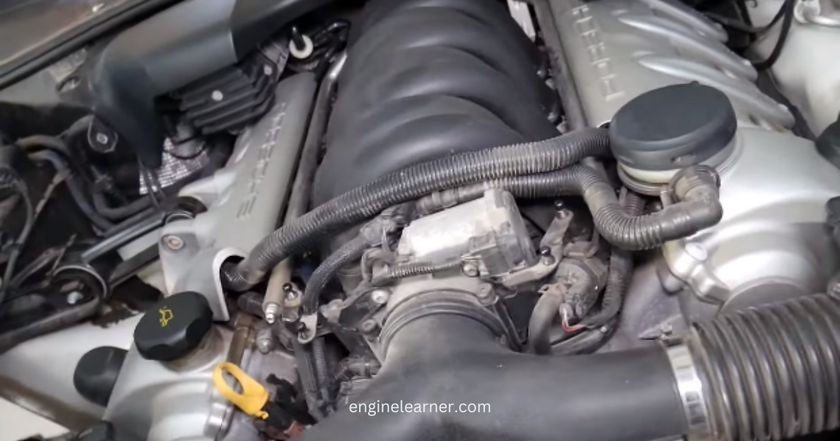Experiencing a car that shudders when turning off can be concerning. This shaking sensation often indicates an underlying issue that needs attention. Understanding the common causes and potential solutions can help you address the problem promptly and prevent further damage. This article will explore the reasons why your car might shudder when turning off and provide insights into diagnosing and resolving the issue.
Common Causes of Car Shudders When Turning Off
Several factors can contribute to a car shuddering when the engine is turned off. Here are some of the most frequent culprits:
Worn or Malfunctioning Spark Plugs
Spark plugs ignite the fuel-air mixture in the engine cylinders. Worn or malfunctioning spark plugs can disrupt this process, leading to uneven combustion. This uneven combustion can cause the engine to shake, especially noticeable when turning off. Copper spark plugs typically wear out faster than iridium spark plugs.
Dirty or Clogged Fuel Injectors
Fuel injectors deliver fuel to the engine cylinders. Over time, they can become clogged with debris, restricting fuel flow and causing uneven combustion. This can result in engine shuddering when turning off, reduced fuel efficiency, and difficulty starting.
Faulty Motor Mounts
Motor mounts secure the engine to the car’s frame, absorbing vibrations. Damaged or worn motor mounts allow excessive engine movement, leading to noticeable shaking when the engine shuts off. This is a more serious issue that often requires professional repair.
Engine Misfiring
Engine misfiring occurs when one or more cylinders fail to ignite properly. This can be caused by faulty spark plugs, ignition coils, or other issues. Misfiring can cause a rough idle, shaking, and reduced power. It’s crucial to address misfires promptly to prevent further engine damage.
Low Engine Oil Level
Engine oil lubricates and protects engine components. Low oil levels can cause increased friction and heat, leading to engine shuddering and potential damage. Regularly checking and maintaining the correct oil level is essential.
Problems with Fuel System Components
Various fuel system components, such as a malfunctioning fuel pump, a dirty air filter, or a clogged fuel filter, can contribute to engine shuddering. Regular maintenance and inspection of these components are crucial for proper engine function.
Ignoring the Shudders: Potential Consequences
Ignoring engine shuddering when turning off can lead to more significant problems. A shaking engine can strain and damage other components, such as hoses, belts, and electrical systems. This can result in costly repairs and potentially dangerous driving conditions. Addressing the issue early can prevent further damage and ensure your safety on the road. Failed engine mounts, for example, can cause the engine to shift and potentially damage surrounding components.
Diagnosing the Problem
Diagnosing the cause of engine shuddering often requires a systematic approach:
- Check Warning Lights: Dashboard warning lights can provide clues about potential issues.
- Inspect Spark Plugs and Ignition Coils: Look for signs of wear, damage, or fouling.
- Examine Motor Mounts: Check for visible damage, cracks, or loose bolts.
- Test Fuel Injectors: Professional testing can determine if they are clogged or malfunctioning.
- Inspect Air and Fuel Filters: Replace dirty or clogged filters.
Preventing Car Shudders
Proactive maintenance can help prevent engine shuddering:
- Regular Spark Plug Replacement: Adhere to the manufacturer’s recommended replacement schedule. Consider using higher-quality iridium spark plugs for longer life.
- Fuel Injector Cleaning: Periodically clean fuel injectors to prevent clogging. Using quality fuel can also help.
- Motor Mount Inspection: Regularly inspect motor mounts for signs of wear and tear.
- Maintain Proper Engine Oil Level: Check and top off engine oil as needed.
- Fuel System Maintenance: Regularly replace fuel and air filters and address any fuel system issues promptly.
Is it Safe to Drive with a Shuddering Engine?
While driving short distances with a slightly shuddering engine might be possible, it’s generally not recommended. Continuing to drive with a shaking engine can worsen the underlying problem and potentially lead to a breakdown or unsafe driving conditions. A shuddering engine could indicate a serious issue that requires immediate attention. Consult a mechanic as soon as possible to diagnose and repair the problem.
Conclusion
A car that shudders when turning off signals a potential problem that shouldn’t be ignored. By understanding the common causes, taking preventative measures, and addressing issues promptly, you can maintain your car’s performance, reliability, and safety. If you’re experiencing this issue, consult a qualified mechanic for diagnosis and repair. Regular maintenance and timely repairs are essential for a smooth and safe driving experience.


